PHUKET: Australia is the new destination of choice for some captive boatpeople in Thailand after the surprise appearance this week of an adventurous young Rohingya refugee from Adelaide.
Mohammed Salim, who carries international travel documents and a UNHCR card, has flown from Australia to be reunited with his mother and three brothers at a Thai government family care centre north of Phuket.
His aim: to bring them back to Adelaide in South Australia, where he is a student, as soon as possible.
Mohammed's ambition is likely to be successful, according to Thailand's Immigration Bureau chief, Major General Panu Kerdlabpon, who told Phuketwan when he was in Phuket this week that Mohammed's application needs to be made at government to government level.
Thailand has been looking for ''third countries'' willing to take Rohingya migrants and remains unsure about what to do with its 1934 captive boatpeople. Australia is an option for some.
Mohammed turned up this week at the refuge centre in Phang Nga, north of Phuket., where his mother and two of his brothers are being detained among 72 women and children, just one of many groups being held indefinitely in Thailand.
Another teenage brother is among mostly adult Rohingya men at the Phang Nga Immigration centre.
Mohammed told Phuketwan that he fled Burma by boat in 2003, spent seven years in Malaysia, then travelled via Indonesia to Australia where he spent 11 months in detention before being granted a refugee visa.
''My father and my older brother were 'lost' in the Buddhist violence in Sittwe last year,'' said Mohammed, 28. ''The rest of my family fled by boat. I want to bring them to Australia. It is better than Malaysia.''
A friend in Malaysia alerted Mohammed to the presence of his mother and brothers in the centre north of Phuket, where the appearance of every smartphone brings requests to make calls to Malaysia, Burma, or other countries.
Hundreds of Rohingya have been detained in Thailand since January when Thai officials realised that women and children were fleeing to sea for the first time with their menfolk because of ethnic cleansing in Burma's Rakhine state.
Their status and eventual fate remain undetermined. But none of them want to return to Burma, where they are treated as outcasts, denied citizenship and in danger of being killed by their Buddhist neighbors.
Chances of the Rohingya ever being recognised became slimmer this week with the release of an official Burmese government report investigating the violence in Rakhine state in which about 200 people were killed and more than 8000 homes burned.
The report referred to Rohingya throughout as ''Bengalis.'' The report added weight to the widening impression that racism, encouraged under the decades-long rule of the military, has been allowed to flourish openly under new freedoms. Long-suppressed intolerance has become violence.
Even democracy icon and Nobel prize winner Aung San Suu Kyi has been shown to be locked into a racist outlook.
A spokesperson for the once highly-regarded opposition leader said this week: ''She believes, in Burma, there is no Rohingya ethnic group. It is a made-up name of the Bengali. So she can't say anything about Rohingya. But there is international pressure for her to speak about Rohingya. It's a problem.''
Even if the centuries of Rohingya living in Burma is denied by seemingly intelligent people, their treatment remains, as Human Rights Watch concluded days before the contradictory official Burmese government report, ''a crime against humanity.''
Back in 2009, a Burmese envoy spoke about Rohingya being unwanted in Burma because they were ''ugly as ogres.'' ''You will see in the photos that their complexion is 'dark brown,''' he added, noting that the complexion of true Burmese is ''fair and soft, good-looking as well.''
Racism encouraged under the junta is simply expressed more openly these days through murder, rape and ethnic cleansing inside Burma.
So far Phuketwan has yet to find a single ogre among the men, women and children who have sought passage through Thailand to Malaysia because they fear certain death in Burma. We hope some of them make it to Australia.

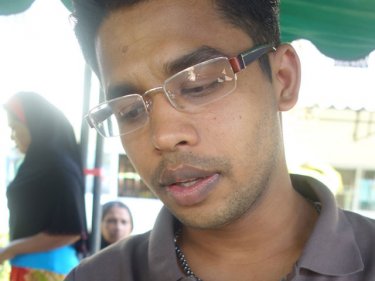





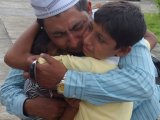


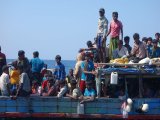
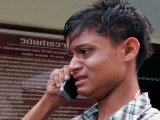

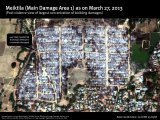
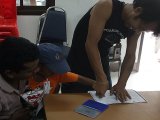

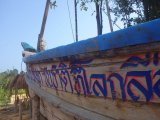
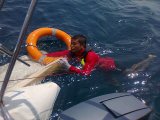
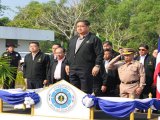
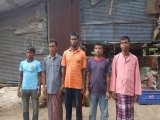
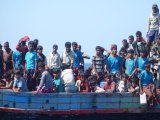

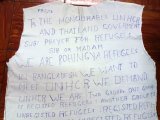
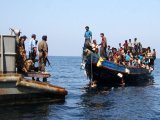


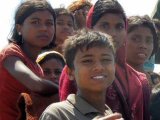
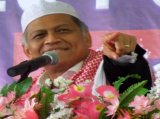
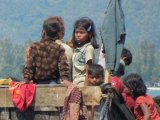
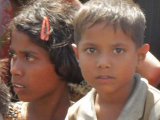
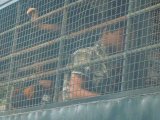
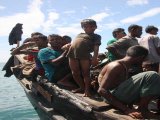
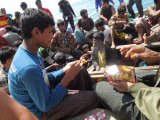




not sure why a a Thai government official deems it necessary to comment on a another country's immigration policy ... got little to do with Thailand and their "Pontious Pilot" attitude
Posted by david on May 5, 2013 13:25
Editor Comment:
He was responding to a question from Phuketwan and is under no restrictions on expressing his opinion about this specific case, or any other case.